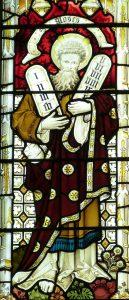
What does the value of life mean to you? In a world that often measures worth by success, productivity, or possessions, can peace be found by first looking inward and understanding that our lives hold value simply because we exist?
God created life! He modeled humanity’s attributes after Himself. But God gave us choices:
- Deuteronomy 30:19: “This day I call the heavens and the earth as witnesses against you that I have set before you life and death, blessings and curses. Now choose life, so that you and your children may live.”1NIV New International Version TranslationsYou might call this verse the birth of “Free Will.”
- Joshua 24:15: “But if serving the Lord seems undesirable to you, then choose for yourselves this day whom you will serve, whether the gods your ancestors served beyond the Euphrates, or the gods of the Amorites, in whose land you are living. But as for me and my household, we will serve the Lord.” Joshua reminds us that the choice for God begins in our own hearts.
- Proverbs 16:9: “In their hearts humans plan their course, but the Lord establishes their steps.” King David reminds us that our choices are meaningless if they are not in concert with God’s Will for our lives.
- Galatians 5:13: “You, my brothers and sisters, were called to be free. But do not use your freedom to indulge the flesh; rather, serve one another humbly in love.” The Apostle Paul, however, reminds us that with choices will come accountability.
- Revelation 3:20: “Here I am! I stand at the door and knock. If anyone hears my voice and opens the door, I will come in and eat with that person, and they with me.” Most importantly, as the Word of God closes on history, we are reminded that all must first choose Jesus Christ to spend eternity with God.
Life itself is characterized by several unique attributes that distinguish living organisms from inert, non-living things.
- Growth and Development: Living organisms grow and develop according to specific genetic instructions. For example, a seed grows into a plant, and a fertilized egg develops into a complex organism—the complexity of DNA points to purpose and design. DNA points to a Creator!
- Reproduction: Living organisms can reproduce to produce new individuals of the same species. Find one rock, you have one rock!
- Metabolism: Life, living things, involves complex biochemical processes that convert energy from the environment into forms that can be used for growth, repair, and maintenance. In essence, living things are self-sustaining. Amazing what the “Breath of God” did at the moment of creation!
- Homeostasis: Living organisms were created to maintain a stable internal environment despite changes in the external environment. For example, humans regulate their body temperature through the processes of sweating and shivering. This should serve as good news: Humans can change. If we can recognize the “threats” to our self-preservation, God created humans to choose. Free will does not mean we are sentenced to a hopeless existence without peace. Good choices can provide us a path to safety and to God!
- Responsiveness: While all living organisms can respond to environmental stimuli, humans can react through a process of decision-making. Humans can change their environment, and humans can alter the course of consequences. If one’s heart is filled with hatred, the hatred can be replaced with the love of our Savior!
Over time, living organisms evolve and adapt to their environment through natural selection, leading to the development of traits that enhance survival and reproduction. However, from God’s perspective, humans are not merely the results of evolutionary experiments. Everyone has been created with inherent value and a profound need for purpose in life. Depriving any human of these essential needs contradicts God’s Will. Through reason, common sense, and revelation (Holy Spirit), a person can recognize that God exists and learn His Will for them.
A journey toward peace begins with using God’s Word as a source of learning. God, our Creator, made you in His image, reflecting His attributes. Your free will impacts the value you place on every other human being. In God’s eyes, every human has inherent worth, regardless of external factors such as social, cultural, or economic circumstances. Even the most intense hatred does not change God’s opinion. When we decide, because of disagreement, that another person has no value, we invite war, famine, crime, abortion, and murder, to name a few. These are the consequences of devaluing life, and they rob us of peace and the hope of eternal life.
The strongest Gospel is one told without words!
The phrase “God darkened their hearts and turned them over to their lusts” comes from the writings of the Apostle Paul in the New Testament, specifically in the book of Romans. In Romans 1:24-28, Paul discusses how humanity, despite knowing God, chose to reject Him and follow their own desires. As a result, God allowed them to follow their own sinful inclinations, leading to moral and spiritual degradation. Paul’s message here is that when people persistently reject God and choose to follow their own sinful desires, God allows them to experience the consequences of their choices. This “darkening of hearts” and being “turned over to their lusts” signifies a withdrawal of God’s restraining grace, leading to a deeper entrenchment in sin and its destructive outcomes that follow.
Paul emphasizes the impact of free will and the consequences of turning away from God. It serves as a warning about the dangers of rejecting divine guidance and the moral decay that can follow. We have removed God from our schools and society. How is our pursuit of peace coming? Therefore, understanding God, learning His Will for us, and using His Word as a historical cornerstone are crucial for achieving true peace. Let us remember that our differences in opinion should never lead to hate. Instead, let us value each life as God does and strive for peace through love and understanding.
(Isaiah 41:10-13) – “So do not fear, for I am with you; do not be dismayed, for I am your God. I will strengthen you and help you; I will uphold you with my righteous right hand. All who rage against you will surely be ashamed and disgraced; those who oppose you will be as nothing and perish. Though you search for your enemies, you will not find them. Those who wage war against you will be as nothing at all. For I am the Lord your God who takes hold of your right hand and says to you, Do not fear; I will help you.
Contemplations
- How does recognizing the inherent value of every human life contribute to peace?
- Ideas to Explore: Biblical Perspective: Examine scriptures that emphasize the sanctity of life, such as Genesis 1:27, which states that humans are made in the image of God. Moral Implications: What are the ethical responsibilities to treat others with dignity and respect, regardless of differences? Look at historical figures or movements that have championed the value of human life and the impact they had on promoting peace.
- How does our free will influence the way we value and treat others?
- Ideas to Explore: Passages such as Deuteronomy 30:19 and Galatians 5:13 highlight the importance of choice in our actions and attitudes. What are the potential positive and negative outcomes of our options, using real-life examples? Reflect on your own decisions and how they align with the principle of valuing life.
- How can disagreements and hatred lead to societal issues like war, crime, and lack of peace?
- Ideas to Explore: Study passages like Romans 1:24-28 that warn about the consequences of rejecting God’s guidance and giving in to sinful desires. What other examples of conflicts can you think of that all started from devaluing human life and the resulting societal issues? What are strategies for resolving disagreements peacefully, and what is the role of empathy and understanding in preventing hatred?
- 1NIV New International Version Translations








